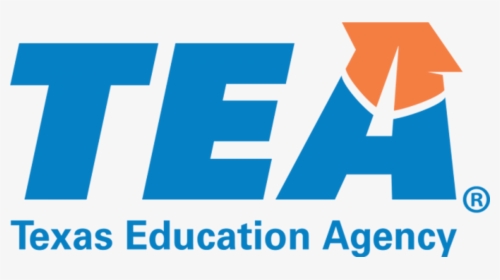Texas Homeschool Information
—Homeschool In Texas—
Homeschooling in Texas




Find Out What the State Says About Home Education
Texas Voucher Program Begins 2026-27 School Year
Texas Voucher Program
Click above for general information on the school voucher plans.

Homeschool Summary
Here’s a clear overview of Texas homeschooling laws for families:
📚 1. Legality & Status
-
Homeschools in Texas are legally treated as unaccredited private schools—you’re free from state approval or oversight
-
This legal status was confirmed in the 1994 Leeper v. Arlington ISD ruling
2. Required Subjects & Curriculum
-
Your homeschool must cover these 5 basic subjects:
-
Reading
-
Spelling and grammar
-
Mathematics
-
Good citizenship (similar to civics)
-
-
Scores in science, history, arts, etc., aren’t legally mandated—but are commonly added for a well-rounded education.
-
Curriculum must be “visual” (books, workbooks, videos, or online programs) and operated in a “bona fide”, genuine educational manner
3. Teacher Qualifications
-
No degree or certification required to teach your own children
4. Enrollment Notification & Withdrawal
-
No state registration or yearly notification needed if your child has never attended public school
-
If transitioning from public school, send a one-time withdrawal letter to the school (principal, attendance office, etc.), specifying full withdrawal and the start date of homeschooling
-
A school may request a simple statement of assurance, which you can provide to confirm you’re homeschooling legally
5. Attendance & Instruction Time
-
There are no mandated hours or days of instruction—unlike public schools, no min. days/year or class hours required .
-
That said, many parents follow a 180-day school-year structure informally
6. Record‑Keeping & Assessments
-
No legal requirement to keep grades, attendance logs, portfolios, or test scores .
-
Still, families often maintain portfolios, course logs, and transcripts—especially for high school or college applications .
-
Standardized testing is optional, not required by law .
7. High School Graduation & Diplomas
-
Texas doesn’t issue diplomas for homeschoolers; parents issue their own when they deem graduation requirements met
-
Colleges generally accept homeschool diplomas, plus standardized tests (SAT/ACT) and transcripts
-
If following public school credit structures (e.g., Algebra I/II, sciences, civics), you can mirror those in your own transcript .

8. Immunizations
-
Homeschool children must meet state immunization requirements, unless a legal exemption is filed
9. Co-ops, Micro-schools & Third‑Party Instruction
-
You may join or run homeschool co-ops or hire tutors freely.
-
If more than ~3rd-party non-family students gather in one home-based setting regularly, zoning or daycare laws could apply
-
Accreditation not required, but co-ops might choose it for added legitimacy.
10. Foster or Shared-Custody Situations
-
Foster parents may homeschool except under specific court or CPS restrictions
-
Parents with joint custody must adhere to whichever parent holds educational decision authority
11. Funding & Vouchers (New)
-
No state funding is required to homeschool—but in 2026‑2027, a new statewide voucher/ESAs program will offer up to:
-
$2,000/year per homeschool student (higher prioritization for low-income or special‑needs students),
-
Up to $30,000 for students with special needs,
-
And up to $10,900 for private school students
-
-
Voucher use does not trigger testing requirements, but spending is limited to approved vendors
-
Texas law prohibits future regulation of homeschooling—even if accepting voucher funds
Texas Voucher Program Begins 2026-27 School Year

👪 Homeschoolers: Options & Considerations
1. Stick with your current homeschool setup
-
The program is entirely optional—you’re free to continue your homeschooling without change
-
If you choose not to participate, your freedoms and curriculum remain untouched.
2. Opt-in to receive up to $2,000/year
-
Funds must go toward approved uses: curriculum, materials (textbooks, videos, online), tutoring, dual credit, special‑needs therapy, etc.
-
No testing requirements or oversight beyond fund eligibility once accepted
-
Entry may be lottery-based, so acceptance isn’t guaranteed .
3. Considerations for homeschool families
-
Some families worry that accepting funds could invite unwanted regulation or restrictions, despite assurances otherwise
-
Homeschool associations—such as THSC—are actively working to ensure freedoms remain intact, while assisting families in accessing the program for those who choose to opt in .
Keep In Mind
This is new so changes as implementation moves ahead should be expected.
Texas Voucher Program Summary
Here’s a clear summary of Texas’s new Education Savings Account (ESA) “voucher” program for the 2026–27 school year, with special focus on homeschoolers:
🏫 Texas ESA Voucher Program Overview
Launch Date & Funding
-
Enacted by Senate Bill 2 (SB 2), signed May 3, 2025; law takes effect September 1, 2025, with the program going live for the 2026–27 school year
-
Up to $1 billion allocated for the first two years (2026–27), funding roughly 80,000–100,000 students in year one
Who qualifies & Priority system
-
All K–12 public-school eligible students may apply, including those from public or private schools, and homeschoolers .
-
If demand exceeds funds, selection follows this priority order:
-
Students with disabilities (from families ≤ 500% FPL)
-
Public-to-private school transfer families (≤ 200% FPL)
-
Public-to-private (201–499% FPL)
-
Higher-income families (capped at 20% of total funding)
-
Funding Amounts
-
Private school students: about $10,000–10,900/year (~85% of per-student public funding); students with disabilities may receive up to $30,000
-
Homeschool families: $2,000/year for curriculum, materials, tutoring, therapies, dual credit, etc.
Usage & Oversight
-
Funds are distributed via state-managed accounts (likely through “ESA” accounts, akin to the ClassWallet model)
-
Spending limited to approved educational goods/services from state‑certified providers/vendors
-
Homeschool participants are not required to take standardized tests and are not subject to additional regulation or accreditation mandates
Homeschool Resources for Texas
Information on this page is intended for informational purposes for homeschool families in the specific state. The information supplied does not, nor is it intended to, provide specific legal advice. For specific legal advice, we recommend you consult an attorney. Membership with Homeschool Legal Defense may provide legal information for your situation, but you may prefer a local private attorney to review your situation to provide specific legal advice.




